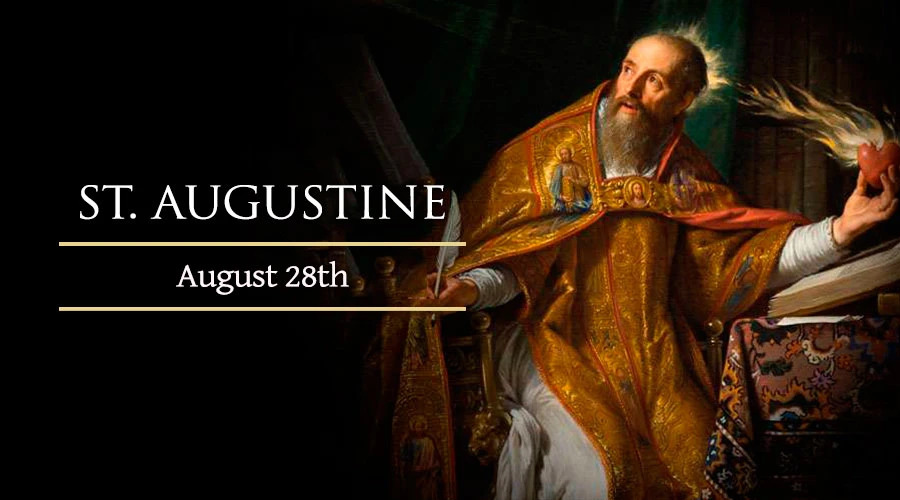
St. Augustine - A Theology of Love
Today is the feast day of St. Augustine (354–430).
Augustine is often called the Father of the Western Church, and he stands as one of the most influential theologians in Christian history after St. Paul. His ideas profoundly shaped medieval theology and philosophy, leaving an enduring mark on the scholastic tradition. Centuries later, during the sixteenth century, both the Protestant Reformers and the Catholic Counter-Reformers rediscovered Augustine’s thought, drawing strength and authority from his legacy.
At the heart of Augustine’s theology lies the theme of love. In his later writings, he taught that true love is not material comfort or self-centred satisfaction, but a paradoxical journey of self-denial, transformation, and even suffering. Augustine declared, “What defines a person is nothing other than what they love.” Sin, therefore, is not merely wrongdoing but rather the absence of love for the right object; God and our neighbors—or the misdirection of love toward unworthy objects.
Augustine’s theology was forged through both his intellectual brilliance and his restless wandering. He was a seeker, hungry for truth. He mastered the great works of Greek and Latin philosophy, experimented with religions such as Manichaeism, and, as he wrote in his autobiography “Confessions”, he lived for years in lust, selfish ambition, and pride. But only when he encountered the love of God, his restless heart found rest.
His conversion transformed his wandering into wisdom: his philosophical knowledge and his personal struggles deepened his understanding of both God and the human condition. Our human experience cannot be separated from our faith. Our reality is where we bring questions about God, embody our encounter with God, and proclaim the good news.
The spiritual writer Henri Nouwen remarked that theology is looking at reality with the eyes of God. It is not a cold abstraction or an escape from reality. Rather, through God we learn who we truly are; through God we glimpse what we are called to become.
As we come to know God more deeply, each moment of our lives takes on clarity, and the light of grace reveals the depth of God’s love for us. Our lives, in turn, become renewed and woven into God—where our story becomes part of God’s story, and God’s story is revealed in ours.
From Fr. James


